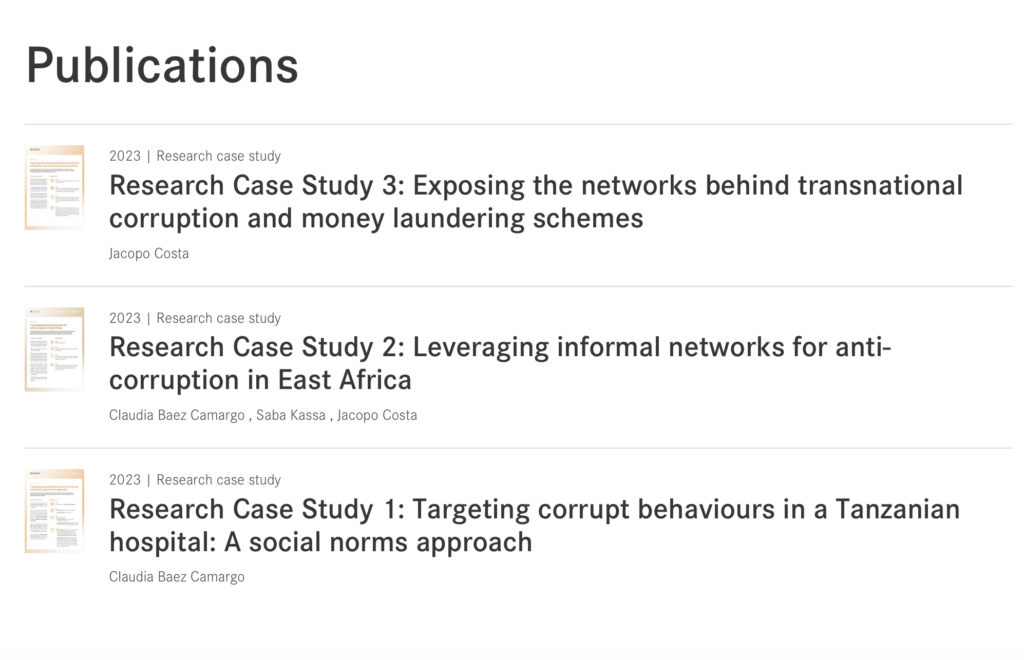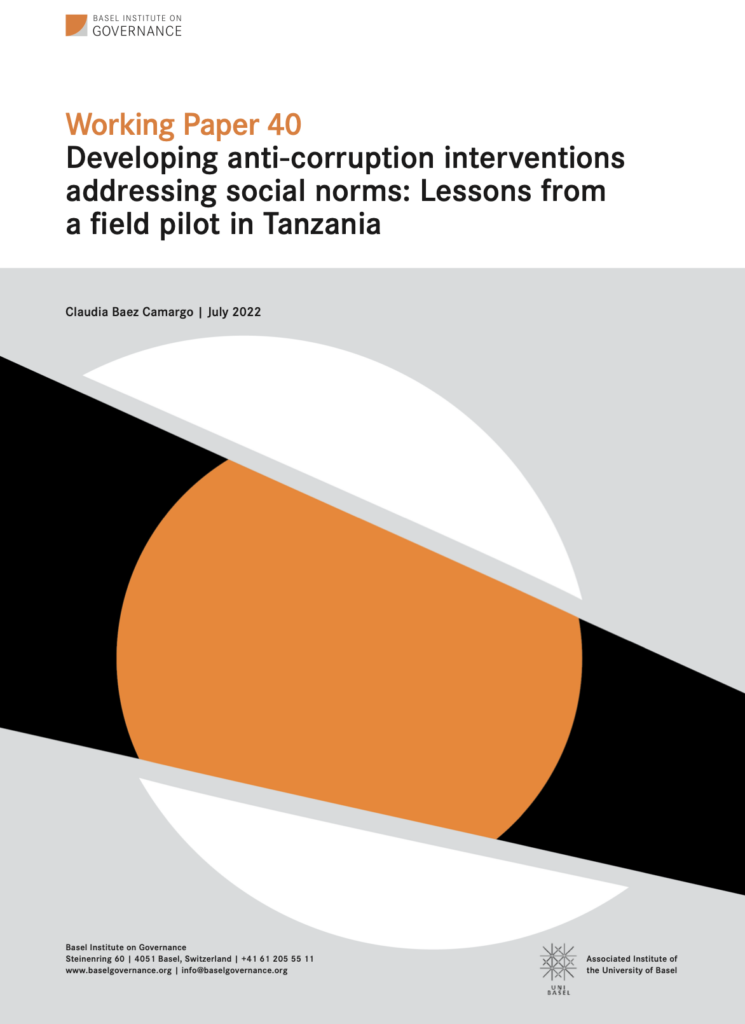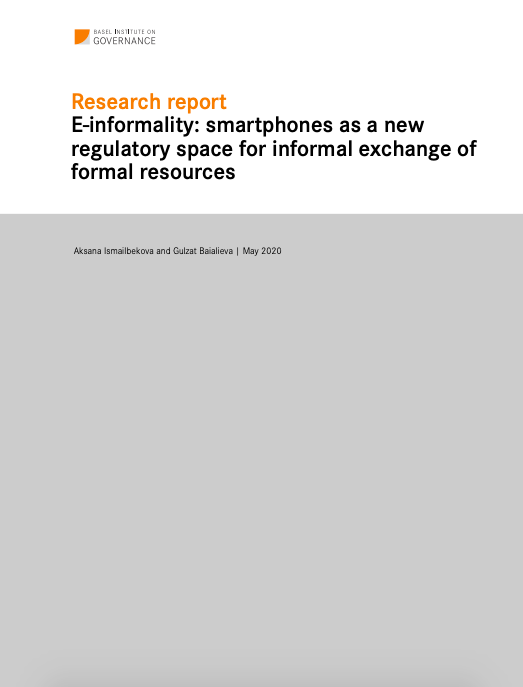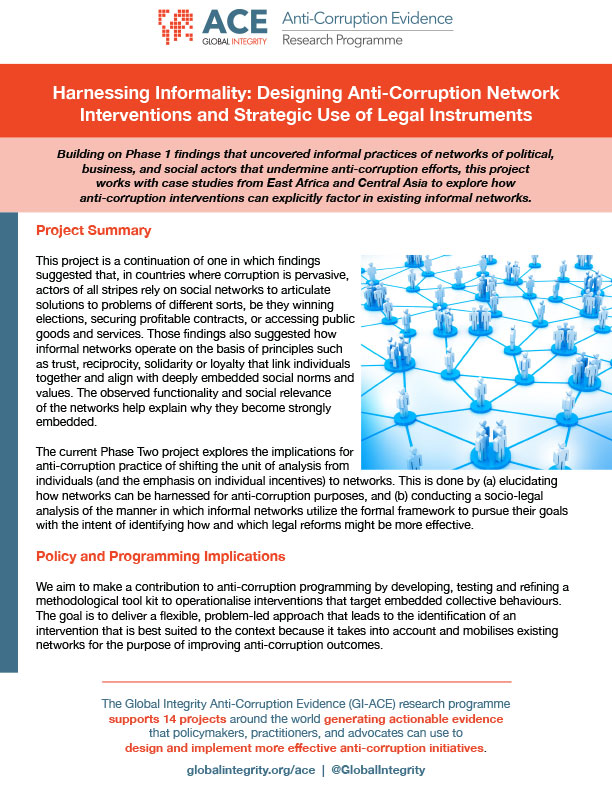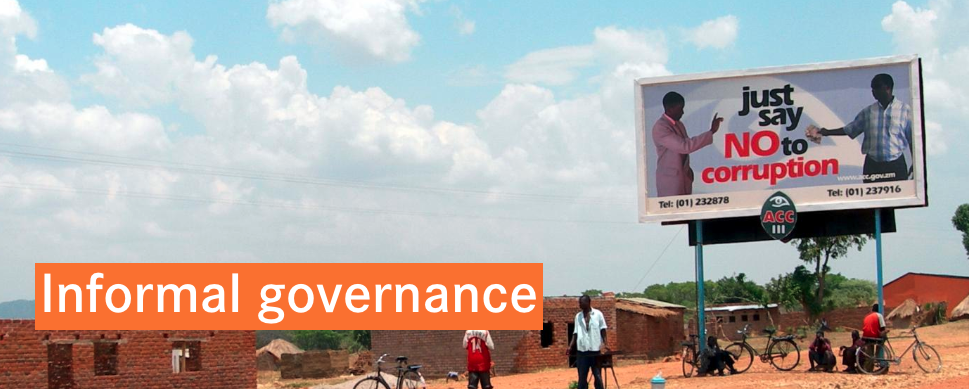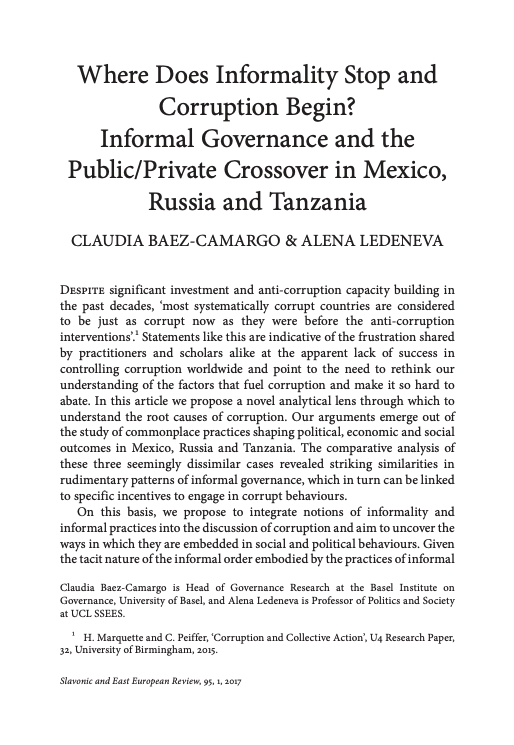Harnessing informality: Designing anti-corruption network interventions and strategic use of legal instruments
Building on Phase 1 findings that uncovered informal practices of networks of political, business, and social actors that undermine anti-corruption efforts, this project works with case studies from East Africa and Central Asia to explore how anti-corruption interventions can explicitly factor in existing informal networks.
Click here for the Project One-Pager
To learn more about this project, contact Principal Investigator Claudia Baez Camargo.
Project Summary
This project is a continuation of one in which findings suggested that, in countries where corruption is pervasive, actors of all stripes rely on social networks to articulate solutions to problems of different sorts, be they winning elections, securing profitable contracts, or accessing public goods and services. Those findings also suggested how informal networks operate on the basis of principles such as trust, reciprocity, solidarity or loyalty that link individuals together and align with deeply embedded social norms and values. The observed functionality and social relevance of the networks help explain why they become strongly embedded.
The current Phase Two project explores the implications for anti-corruption practice of shifting the unit of analysis from individuals (and the emphasis on individual incentives) to networks. This is done by (a) elucidating how networks can be harnessed for anti-corruption purposes, and (b) conducting a socio-legal analysis of the manner in which informal networks utilize the formal framework to pursue their goals with the intent of identifying how and which legal reforms might be more effective.
Policy and Programming Implications
We aim to make a contribution to anti-corruption programming by developing, testing and refining a methodological tool kit to operationalise interventions that target embedded collective behaviours. The goal is to deliver a flexible, problem-led approach that leads to the identification of an intervention that is best suited to the context because it takes into account and mobilises existing networks for the purpose of improving anti-corruption outcomes.
Research Questions
- How can informal practices and relationships be best accounted for in anti-corruption work?
- Is it possible to develop network-based anti-corruption interventions?
- What anti-corruption legal reforms work better in contexts of high informality?
Methodology
The following research strategies are reflected in two workstreams:
- Elucidating how networks can be harnessed for anti-corruption purposes. This will be based on case studies from Tanzania and Uganda that will (a) explore the impact of informal networks on the provision of essential public services, and (b) assess potential areas where convening networks of anti-corruption champions around collective action initiatives may be most promising. A sequential, mixed methods research design is adopted that involves mapping of existing networks and assessing their characteristics qualitatively. When possible, a social network analysis is applied to better understand the attributes of the networks. This provides the foundation for the next step: building on the theories and findings advanced by colleagues in areas such as public health who have, with increasing degree of success, developed and implemented network interventions, in order to discern what variants of anti-corruption network interventions might be feasible and relevant for the type of networks encountered.
- A socio-legal analysis of the manner in which informal networks utilize the formal framework to pursue their goals with the intent of identifying how and which legal reforms might be more effective, drawing from evidence from Kyrgyzstan and Kazakhstan. In this approach, law is investigated as part of a social system in which actors with differential access to pivotal resources exercise commensurately differential power in the formulation and application of formal legal rules and procedures. This perspective digs deep into the interface and interplay between formal rules / institutions and informal norms / practices.
Research Team Members
- Claudia Baez Camargo, Head of Governance Research, Basel institute on Governance / University of Basel
- Lucy Koechlin, Senior Lecturer, Institute of Social Anthropology, University of Basel
- Scott Newton, Reader in Laws of Central Asia, School of Law, SOAS University of London
- Alena Ledeneva, Professor of Politics and Society, School of Slavonic and East European Studies, University College London
- Jacopo Costa, Senior Researcher, Basel Institute on Governance / University of Basel


